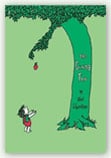Brazilian Rainforest: Future
The future of the Brazilian rainforest hangs in the balance as lawmakers in the South American nation debate changes to the Forest Code.
In fact, after decades of progress in working to preserve huge swaths of Amazon Rainforest from deforestation and destruction, it seems Brazilian leaders are poised to take several steps back.
Essentially, it comes down to the money.
Back in 1992, the country hosted an “Earth Summit,” out of which was birthed an agreement to foster greater protection of and responsibility for one of earth’s most treasured resources – 60 percent of which resides in Brazil. Among those efforts was a requirement that Brazilian farmers – the world’s largest producers of sugar cane and coffee - to set aside roughly 80 percent of their land for conservation.
The new bill would reduce the percentage of land that farmers are required to protect. It would also exempt them from being required to replant sections that were cleared illegally prior to 2009, according to Bloomberg Businessweek.
Farmers say they will lose about $100 billion in output of agriculture if the measure fails.
But on the other hand, the goal from that 1992 summit had been to reduce deforestation in 2020 by 80 percent. That effort is going to be seriously impeded if this measure is pushed through. And the whole reason that these farmers have allowed the country to expand from the ninth-largest economy to the sixth is due to continued clearing of the rainforest – often against the law.
The value of what is at stake is truly immeasurable. Some experts calculate that we are already losing an astonishing 137 species of plants, insects and animals every single day as a result of deforestation of the rainforest. This breaks down to about 50,000 species every year.
Look at that in comparison to how many drugs we use that are plant-based: about 120. It doesn’t seem like much, until you consider that less than 1 percent of trees and plants in the tropics have been tested by scientists for their medicinal value.
What’s more, the U.S. National Cancer Institute has identified more than 3,000 plants that are active in battling cancer cells. Of these, 70 percent are found in the rainforest.
That’s only one reason – and a selfish one at that – to care about the severe impact that altering the Brazilian Forest Code could have. Of course, there are a thousand more.
Get involved.
Make your voice heard.
Find out how by contacting us at:
Phone: 877.763.6778



